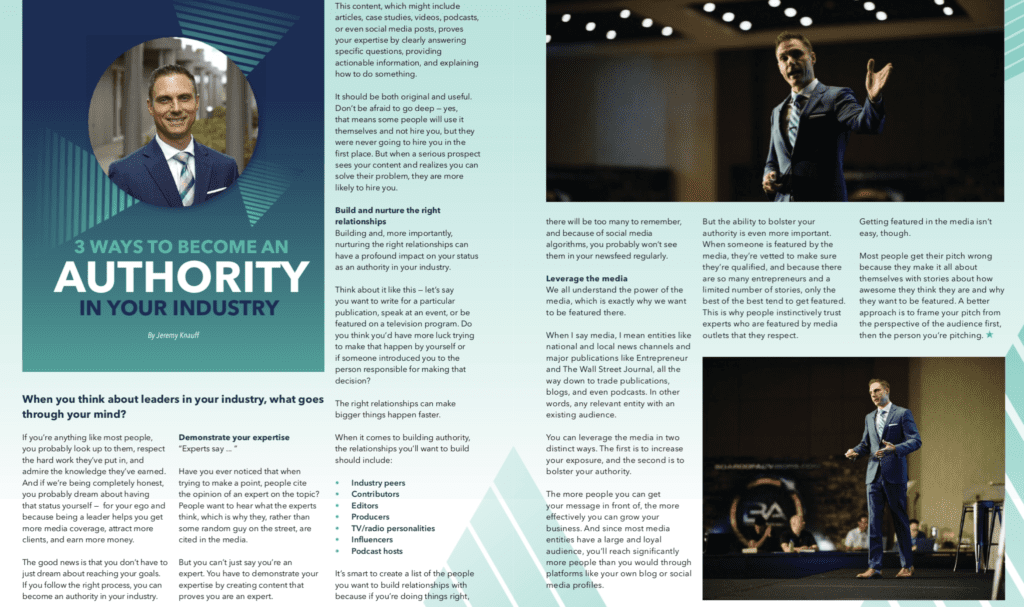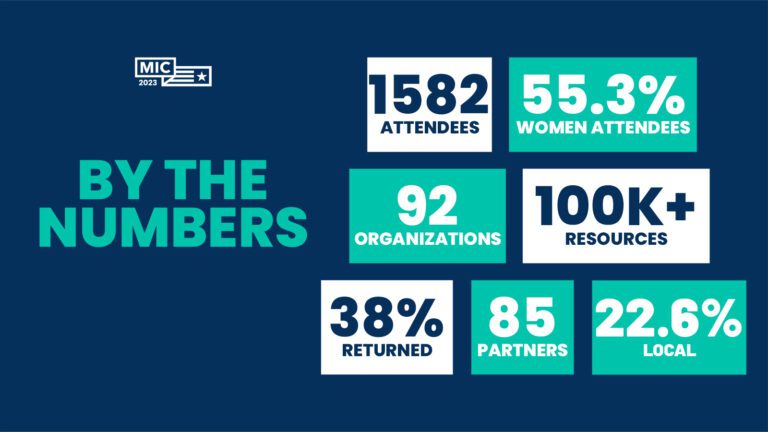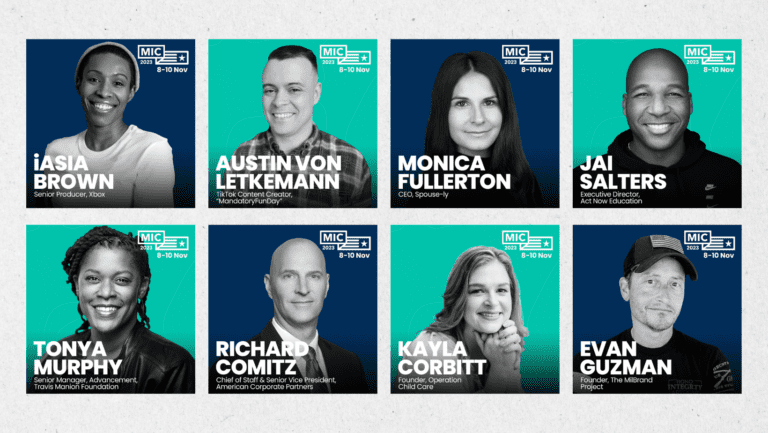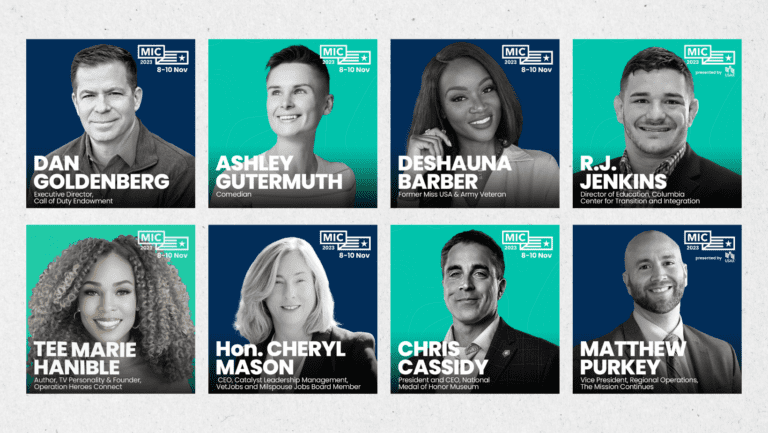When you think about leaders in your industry, what goes through your mind?


When you think about leaders in your industry, what goes through your mind?
The good news is that you don’t have to just dream about reaching your goals. If you follow the right process, you can become an authority in your industry.
“Experts say … ”
Have you ever noticed that when trying to make a point, people cite the opinion of an expert on the topic? People want to hear what the experts think, which is why they, rather than some random guy on the street, are cited in the media.
But you can’t just say you’re an expert. You have to demonstrate your expertise by creating content that proves you are an expert.
This content, which might include articles, case studies, videos, podcasts, or even social media posts, proves your expertise by clearly answering specific questions, providing actionable information, and explaining how to do something.
It should be both original and useful. Don’t be afraid to go deep — yes, that means some people will use it themselves and not hire you, but they were never going to hire you in the first place. But when a serious prospect sees your content and realizes you can solve their problem, they are more likely to hire you.

Building and, more importantly, nurturing the right relationships can have a profound impact on your status as an authority in your industry.
Think about it like this — let’s say you want to write for a particular publication, speak at an event, or be featured on a television program. Do you think you’d have more luck trying to make that happen by yourself or if someone introduced you to the person responsible for making that decision?
The right relationships can make bigger things happen faster.
When it comes to building authority, the relationships you’ll want to build should include:
Industry peers
Contributors
Editors
Producers
TV/radio personalities
Influencers
Podcast hosts
It’s smart to create a list of the people you want to build relationships with because if you’re doing things right, there will be too many to remember, and because of social media algorithms, you probably won’t see them in your newsfeed regularly.
We all understand the power of the media, which is exactly why we want to be featured there.
When I say media, I mean entities like national and local news channels and major publications like Entrepreneur and The Wall Street Journal, all the way down to trade publications, blogs, and even podcasts. In other words, any relevant entity with an existing audience.
You can leverage the media in two distinct ways. The first is to increase your exposure, and the second is to bolster your authority.
The more people you can get your message in front of, the more effectively you can grow your business. And since most media entities have a large and loyal audience, you’ll reach significantly more people than you would through platforms like your own blog or social media profiles.
But the ability to bolster your authority is even more important. When someone is featured by the media, they’re vetted to make sure they’re qualified, and because there are so many entrepreneurs and a limited number of stories, only the best of the best tend to get featured. This is why people instinctively trust experts who are featured by media outlets that they respect.
Getting featured in the media isn’t easy, though.
Most people get their pitch wrong because they make it all about themselves with stories about how awesome they think they are and why they want to be featured. A better approach is to frame your pitch from the perspective of the audience first, then the person you’re pitching.
Jeremy is the CEO of Spartan Media. He helps entrepreneurs become the authority in their industry so they can get more media coverage, attract more clients, and earn more money.


